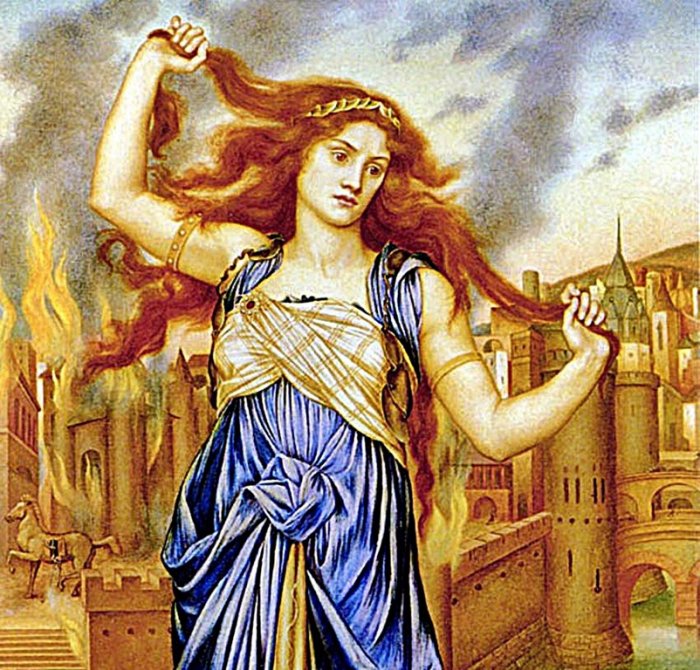Tuesday
Other than the cataclysm that is Donald Trump, 2017’s most significant development may have been the #MeToo movement. People are finally believing Cassandra.
I owe the allusion to Lauren Davis, who notes that the Trojan prophetess was cursed by Apollo when she spurned his advances. Condemned to see the future without being believed, she was unable to save the city of Troy from the wooden horse stratagem and Agamemnon and herself from being murdered by Clytemnestra. Applying the myth to sexual assault victims is not perfect since Cassandra was disbelieved about the future, not the past, but Lauren draws a couple of instructive lessons from the story:
First, I have enormous admiration for a woman (or anyone) who understands they will not be believed, but who chooses to speak the truth regardless. What strength of will, what a core of integrity such a woman must have. It is a hard and lonely place to be… but such a person understands it is the right thing to do, and so does it. Ignore me, she says, deride me and scoff at me, but the truth will still be told.
Second, ignoring truth-speakers is something we do at our peril. Not only does it harm the prophetess, it harms society. It harms us all.
From an archetypal point of view, Cassandra’s relationship with Apollo can be seen as the enigmatic subconscious set against the forces of order and reason. While the patriarchal norm that has condemned women to silent victimhood isn’t reasonable, it has been the prevailing order of things. This order meant that Ajax the Lesser could tear Cassandra away from the temple of Athena and rape her while the Greeks were sacking Troy (although not without incurring divine wrath) and that Agamemnon could bring her home as booty.
That Clytemnestra took out some of her marital rage on Cassandra shows that women as well as men can blame sexual assault victims.
In Aeschylus’s play, Cassandra blames herself for having resisted Apollo’s advances:
Cassandra: Apollo was like a mighty wrestler,
panting all over me, in love.
Chorus Member: Did you go through with it—
bear him a child?
Cassandra: I promised to,
but then I broke my word.
Chorus Member: Did you already have prophetic skill,
inspired by the god?
Cassandra: At that time
I used to prophesy to all my countrymen.
I’d foretell disasters.
Chorus Member: How did you escape Apollo’s anger?
Cassandra: Since I resisted him, no one believes me.
Assault victims may relate to how a powerful male who has been spurned finds ever new ways to punish the woman:
Look how Apollo now in person strips me,
rips my prophetic robes, the god who watched,
as my friends in their hatred turned on me,
mocked me so savagely in these very clothes—
they thought they knew what they were doing.
But they were wrong. I heard them call me names,
“beggar,” “starving wretch”—I endured them all.
And now the prophet god is done with me.
He’s led his prophet to her place of death.
Meanwhile, those around Cassandra can’t hear what she’s trying to tell them:
Chorus member: We’ve heard about your fame in prophecy.
But here in Argos no one wants a prophet.
And later:
Poor girl, calm yourself. Tone down those words.
Cassandra’s final cry for revenge may resonate with anyone who has been jerked around with impunity:
One last time
I feel the urge to speak, not sing a dirge
about my death. I pray to the sun,
here in the light of his most recent day,
that those who carry out revenge for me
will make my enemies pay with their blood
for butchering a slave, an easy victim.
By the end of the play, the Chorus believes the woman, as are increasing numbers of Americans. Trump may still be dodging accountability, but others are being brought down by those who have historically been silenced.


